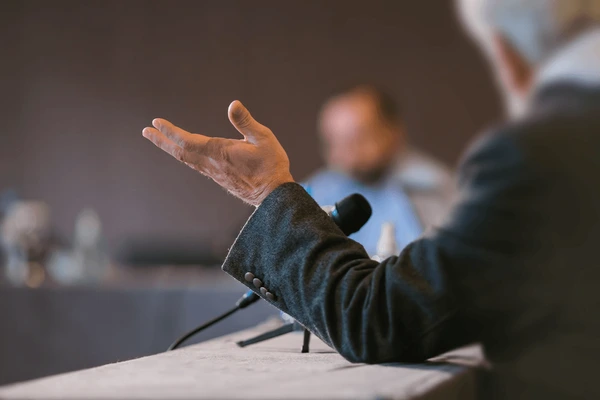There have been nearly 200 presidential primary debates since 1948, and the first Republican presidential debate is slated to take place Wednesday, August 23, 2023, at the Fiserv Forum in Milwaukee, Wisconsin. It should be noted that while there are multiple Democratic candidates in the 2024 presidential race, no incumbent president has participated in a primary debate since President Ford, so it is not expected that there will be a Democratic primary debate. (To see a full list of 2024 candidates running for President, visit Ballotpedia’s resource here, and click here to see the eight candidates expected to be on the debate stage).
The debate stage serves as a crucial platform for candidates to present their visions, policies, and plans to the American public. In order to ensure a fair and informative discourse, candidates must meet specific qualifications to participate in these pivotal debates. The qualifications are designed to reflect a balance between inclusivity and viability, allowing a diverse range of perspectives while maintaining a certain threshold of support and credibility. The following overview outlines the qualifications required for candidates to make the 2023 debate stage:
- Citizenship and Age:
All candidates must be natural-born citizens of the United States and at least 35 years old by the time of the presidential inauguration in January 2024. These requirements are stipulated by the U.S. Constitution to ensure that candidates possess the necessary experience and maturity for the highest office in the land.
- Party Affiliation:
Candidates must be affiliated with a recognized political party. This affiliation can be demonstrated through a nomination from a major political party or by meeting the criteria for an independent candidacy as determined by the Federal Election Commission. Party affiliation serves as an indicator of a candidate’s alignment with established political ideologies and structures. The candidates of the first debate must also sign a pledge that commits their support to the ultimate nominee from the Republican Party.
- Ballot Access:
To demonstrate a level of viability and grassroots support, candidates must qualify for ballot access in a certain number of states. The specific number of states may vary based on the total number of states and territories participating in the debates. This criterion ensures that candidates have a minimum level of organizational capability and popular backing to be considered credible contenders.
- Public Funding and Fundraising:
Candidates must meet certain fundraising thresholds to participate in the debates. This requirement aims to gauge candidates’ ability to attract financial support from a broad base of donors. Public funding can also play a role in demonstrating that a candidate has a level of popular backing, reducing the influence of a few wealthy individuals. Candidates must have 40,000 unique donors, including at least 200 unique donors from 20 states or territories.
- Polling Performance:
Candidates must meet a certain polling threshold to demonstrate their popularity and the extent of their support among the electorate. This criterion helps ensure that candidates have a reasonable level of public recognition and interest. Polling requirements often involve reaching a certain percentage in national or state-specific polls conducted by recognized polling organizations. The candidates for the first debate must have at least 1% support in three national polls or 1% support in two national polls and 1% support in two early state polls.
- Policy Documentation:
Candidates are required to submit detailed policy proposals and plans that outline their stances on key issues facing the country. This documentation helps ensure that candidates are well-prepared to engage in substantive debates and offer concrete solutions to pressing challenges.
- Ethics and Transparency:
Candidates must adhere to ethical standards and transparency requirements set by the debate organizers. This includes disclosing financial interests, conflicts of interest, and potential ethical concerns that may arise from their candidacy. Ethical transparency helps maintain the integrity of the debate process and fosters public trust.
By setting standards for party affiliation, ballot access, fundraising, polling performance, policy documentation, and ethical conduct, the debate stage provides a platform for candidates who possess a genuine chance of winning the presidency. Through these qualifications, the debates contribute to the informed decision-making of the American electorate.




